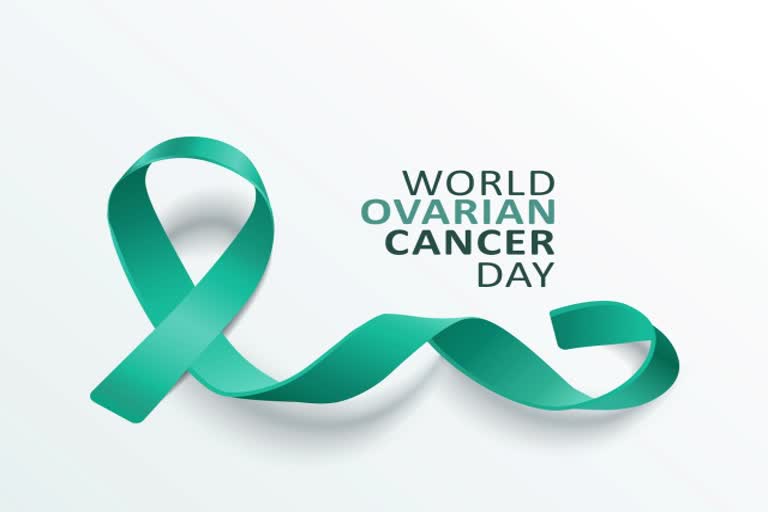Everyone is aware of what cancer is and its various types, depending upon which part of the body is affected. One such type is Ovarian cancer and to raise more awareness about the same, every year on 8th May, World Ovarian Cancer Day is observed. According to the figures from GLOBOCAN (Global Cancer Observatory), 2018 show that ovarian cancer is the 8th most common cancer and the 8th most common cause of death from cancer in women in the world. Let us know more about it.
Ovarian Cancer And Its Symptoms
Abnormal growth of cells in a part of the body, which can also spread to other parts, is referred to as cancer. Ovarian cancer, as the name suggests, is the cancer of ovaries in females, the part responsible for the production of eggs and hormones in the female body. Women have two ovaries, located in the pelvis region, on either side of the uterus.
There can be various signs and symptoms of ovarian cancer. However, there may be few or even no symptoms in the initial stages and they may be easily ignored as they can resemble some of the common conditions like PMS or IBS, etc. Here are some of the symptoms as mentioned by the Centers for Disease Control and Prevention (CDC):
- Vaginal bleeding (particularly if you are past menopause), or discharge from your vagina that is not normal for you.
- Pain or pressure in the pelvic area.
- Abdominal or back pain.
- Bloating.
- Feeling full too quickly, or difficulty eating.
- A change in your bathroom habits, such as more frequent or urgent need to urinate and/or constipation.
“Pay attention to your body, and know what is normal for you. If you have unusual vaginal bleeding, see a doctor right away. If you have any of the other signs for two weeks or longer and they are not normal for you, see a doctor. They may be caused by something other than cancer, but the only way to know is to see a doctor.”, states CDC.
Risk factors Of Ovarian Cancer
The exact reason for ovarian cancer remains unclear, however, there are several reasons that can increase the risk of this cancer. Some of them are:
- Family history
- Age
- Positive for BRCA1 or BRCA2 genetic mutation
- History of breast uterine or colon cancer
- Obesity
- No pregnancies/ reproductive factors
- Endometriosis
- Lifestyle factors
Also read: Ushalakshmi Breast Cancer Foundation Dedicated to Breast Cancer Patients
Diagnosis And Treatment
Once you notice any unusual symptoms, consult your doctor immediately. The doctor would ask you about your medical history, may conduct a pelvic exam and other imaging tests like ultrasound, CT scan, MRI scan. Blood tests, biopsy, colonoscopy, laparoscopy, etc. may also be conducted.
Doctors may usually suggest a combination of surgery and chemotherapy as treatment for someone diagnosed with ovarian cancer. Other ways of treatment may include targeted surgery, hormone therapy, radiation therapy, and immunotherapy. The treatment may depend upon the type and stage of cancer, your overall health, etc. Consult your doctor to understand what treatment is the best in your case.
Therefore, early diagnosis can help in acquiring the best treatment for ovarian cancer. Consult your doctor if you have unusual vaginal bleeding or any of the aforementioned symptoms lasting for two weeks or longer. The reason may not always be cancer, but understanding the reason and treating it, instead of making it worse is important. Currently, in the times of the COVID-19 pandemic, almost all the doctors are practicing teleconsultations. So, if you cannot step out and visit a doctor physically, consult them over a call or video call and follow their prescription and advice.



